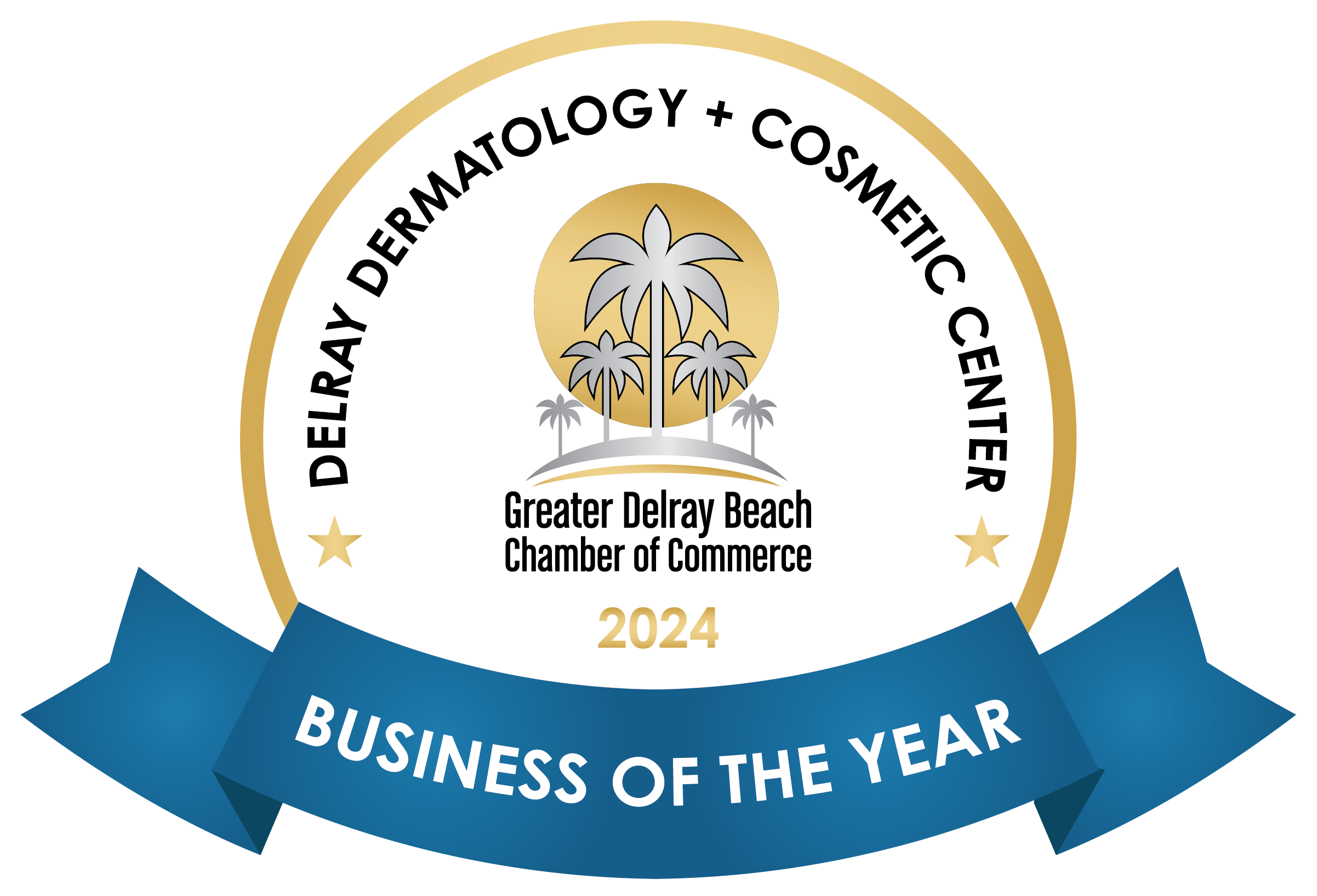General Dermatology
Acne
Acne
Acne can affect teenagers as well as adults and can involve not only the face but also the chest, back, and shoulders. In addition to pimples, cysts, blackheads and whiteheads, acne may also leave semi-permanent or permanent scarring. There are many treatments for acne your Dermatologist can provide, including a combination of prescription topical and oral medications. Spironolactone is an oral medication that works on the hormonal component of acne in adult women. Accutane is a pill medication that is used as a last resort for severe, stubborn acne and has excellent cure rates.
We also provide treatments for acne scarring including prescription in office lightening regimens and laser treatments for deeper scarring.
Actinic Keratoses
Actinic Keratoses
Actinic keratoses are rough pink spots on the skin that occur in sun-exposed areas due to cumulative sun damage. These lesions are precancerous and have the potential to turn into a basal or squamous cell carcinoma. Treatment options include: freezing (liquid nitrogen treatments), prescription topical chemotherapy creams or photodynamic “blue light” therapy.
Photodynamic therapy is a form of field treatment for actinic keratoses, or precancers. This procedure is performed in the office with the application of a topical solution called aminolevulinic acid followed by exposure to a blue light device. This causes selective destruction to the precancers in the area that is treated. Following the treatment patients typically experience redness and must avoid the sun for up to 3 days. Some peeling may occur, but overall the procedure is very well tolerated. A significant reduction in the number of precancers is seen after 1 treatment, but your doctor may recommend a second treatment depending on the amount of photo-damage you have in a given area. Areas that can be treated include the face, scalp, chest, and arms.
In addition, blue light therapy can be used for acne treatments as well.
Benign moles and growths
Benign moles and growths
The average person has 15-40 moles. Having a high number of moles and dysplastic or “prescancerous” moles increases the risk of melanoma. Individuals with new or changing moles should have them evaluated during a skin examination appointment. Your Dermatologist can identify which moles or growths are benign and discuss removal methods for cosmetic purposes if desired. Seborrheic keratoses, often called “wisdom spots” are a common type of benign growth that are genetically inherited and increased in number with age. These can also be removed for cosmetic purposes often by liquid nitrogen or electrodessication.
Eczema (Atopic Dermatitis)
Eczema (Atopic Dermatitis)
Atopic Dermatitis (commonly referred to as eczema) is inflammation of the skin that causes severe itching and rash. Treatments may include include a combination of prescription topical medications, moisturization and anti-itch medications.
Hair Loss
Hair Loss
Hair loss can occur in both men and women and at any age. There are many causes of hair loss that can be evaluated by and treated by your Dermatologist. Often a biopsy and blood work may be warranted if the hair loss has persisted longer than 6 weeks. If you have noticed abnormal thinning of the hair, make an appointment today.
Hyperhidrosis
Hyperhidrosis
Hyperhidrosis, or excessive sweating, is extremely common and can occur in the axilla as well as on the palms and soles of the feet. Prescription grade anti-perspirants can be prescribed, as well as Botox injections. Botox injections are quick to administer and can provide a decrease or resolution of sweating in the areas treated for up to 12 months.
Melasma
Melasma
Melasma is a chronic skin disorder starting in adulthood that results in blotchy brown pigmentation on the skin, often on the cheekbones, forehead and upper lip. It most often affects women, but men can be affected as well. Melasma can be triggered by sun exposure, pregnancy, and hormone treatments like oral contraceptive pills.
There are many treatments for melasma we can provide at Delray Dermatology, including prescription grade lightening topical regimens containing hydroquinone and tretinoin or non-hydroquinone alternatives. Diligent daily use of a broad spectrum sunscreen containing zinc is important in the treatment of any cause of discoloration to prevent new dark areas and to help lighten existing areas. Schedule a consultation to first have your pigmentation evaluated and obtain a personalized treatment plan.
Mohs Surgery
Mohs Surgery
Mohs micrographic surgery is a precise surgical technique used to treat skin cancer. It is considered the most effective technique for treating many basal and squamous cell carcinomas, the two most common types of skin cancer. During Mohs surgery, the surgeon removes a thin layer around the cancer progressively in stages and examines it under the microscope until only cancer-free tissue remains. The goal of this surgery is to remove the cancer in its entirety while minimizing damage to the surrounding tissue which results in a smaller scar. Mohs surgery is done in the office under local anesthesia. It is used to treat specific types of skin cancer. Generally it is used for cancers that have recurred from other treatments, those of a larger size, more deeply invasive, poorly defined borders, more aggressive subtypes of basal and squamous cell carcinoma, patients who are immunocompromised or at high risk of recurrence, as well as those tumors located in areas where preservation of as much surrounding skin is necessary such as around the eyes, ears, nose, mouth, hands, feet, scalp and neck.
Psoriasis
Psoriasis
Psoriasis is an autoimmune condition of the skin that is often also associated with arthritis. It manifests as red flaky plaques most commonly on the elbows, knees, scalp, hands and feet. Psoriasis can be diagnosed clinically and by a biopsy. There are many treatments for psoriasis including topical, oral and injectable medications that your Dermatologist can prescribe.
Rashes
Rashes
Dermatologists are trained in the diagnosis and management of 3000 conditions of the skin, hair, and mucous membranes. There are many potential causes of rash and your Dermatologist can diagnose and treat you by a clinical examination and a biopsy if needed.
Rosacea
Rosacea
Rosacea is an inflammatory condition of the skin that causes redness, telangiectasias (“broken blood vessels”), flushing and acne type pimples. Gentle skin care and sun protection is important in the basic care of rosacea patients. Your Dermatologist can provide prescription treatments for rosacea including topical and oral medications. Laser treatments, like IPL, can diminish the redness and broken blood vessels in a series of treatments.
Other Medical Dermatologic conditions
Other Medical Dermatologic conditions
Other Dermatologic conditions that we treat include: allergic skin reactions, cysts, fungus, hives, itching, shingles, skin tags, vitiligo, and warts.


